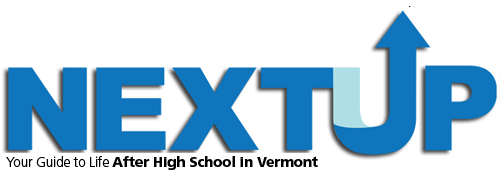by Emma Marc-Aurele
Social media isn’t just for posting pictures of your #WildWeekend, but can actually help prepare you for a future career.
Personal branding - using social networking to create a public image of yourself - is number two on the Wall Street Journal’s list of must-have job skills for 2013.
Human-resources executives scour blogs, Twitter, Facebook and professional networking sites such as LinkedIn when researching candidates and it’s important that they like what they find, according to the Journal.
“That’s your brand, that’s how you represent yourself,” said Peter Handal, CEO of Dale Carnegie Training, a Hauppauge, NY, provider of workplace-training services. “If you post something that comes back to haunt you, people will see that.”
More than just presenting a respectable and appropriate “self brand” employers want to see that you are capable of using the media world in a creative and effective way.
“More and more employers are looking for employees to tweet on their behalf, to blog on their behalf, to build an audience and write compelling, snappy posts,” Meredith Haberfeld, an executive and career coach in New York, told WSJ.
Haberfeld has a client whose employee recently posted on her personal page about eating Chinese food and smoking “reefer.”
“I saw it on Facebook. Her supervisors saw it,” Haberfeld said.
That kind of recklessness on social media sites is one of the reasons Daniel Post Senning, great-great-grandson of etiquette writer Emily Post, recently released his book, “Manners in a Digital Age: Living Well Online.” The Emily Post Institute (www.emilypost.com) is based in Burlington, Vermont.
The main message from Emily Post’s book on etiquette standards served citizens well for 100 years and continues to function well in online space, Senning said.
If you stop and think about it, Senning said, behavior online and with this new technology follows a traditional message and the same core principles of honesty, respect and consideration.
“People think manners are a form of judging, but it’s quite the opposite,” he said. “Manners change and evolve.”
Senning gave an optimistic message when he emphasized that teens have really paved the way for following a pattern of social skills online because they have grown up with these devices.
“Parents make mistakes that kids won’t,” he said.
But why do manners online matter?
One reason Senning pointed out was improving your digital profile for employment opportunities. LinkedIn is used by more and more people and creating a profile shows you have a concept of yourself as a professional, Senning said.
Senning also discussed how three other social media platforms should be utilized:
Facebook: “Sharing your social life is not seen as appropriate, make it private or limit it to close friends. Participate in a way so that you can take responsibility.”
Twitter: “Treat twitter like it’s a public space, an open conversation. Everything on Twitter is public and permanent. Even if you delete Tweets, there are people that can still find them.”
Snapchat: “This application gives you an illusion of anonymity, but it’s less anonymous than you might hope. There are simple ways to save photos from SnapChat, which could lead to trouble down the road.”
Senning also said that the three tiers of conversation are rules that should also be followed in an online setting.
1. Celebrities, sports, weather: These topics of conversation can be used anytime.
2. Religion, dating, politics: Use cautiously and know your audience.
3. Family finance: Don’t share this information. It is almost never appropriate.
“Manners never go out of style,” Senning said. “Etiquette is how you connect with others. Social skills give us confidence which relationships are built on.”
Infografs:
Who to follow on Twitter
Twitter isn’t just for telling everyone about how they spelled your name wrong on that caramel macchiato you just bought at Starbucks. It can be a very useful tool for finding out breaking news, and even getting a job. Here is a list of some important Tweeters that you should really start following:
1. Any news source: Pick your favorite media outlet and click follow! Breaking news will keep you up to date on the local, national and international level. Some of my favorites are @nytimes, @USATODAY, and at least one local news source, like @VermontBiz or @VermontToday.
2. For those political junkies, @VtPolitics is always useful for local news and @thehill for national news
3. @SenSanders. It’s always good to pay attention to local government. It’s how you can stay involved and make a difference to your community!
4. Michelle Brown @SevenDaysJobs is constantly sending out local job opportunities
5. @USATODAYCollege is a useful source for college news and trends
Online Etiquette Tips
1. Have respect for yourself.
2. The medium is the message, think about how you use new technology and give it the seriousness it deserves.
3. Be careful about the cell phone security blanket. Give yourself time to engage with people face to face before turning to your phone.
Submitted by Daniel Post Senning

